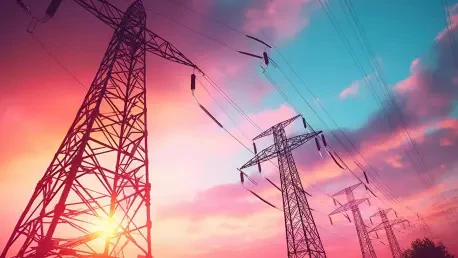The rising complexity and demand of energy systems are ushering in an era where grid reliability management takes center stage in securing a consistent power supply. As population growth and technological advances push energy consumption to unprecedented levels, the energy sector faces mounting pressure to ensure operational stability and tackle the challenging vulnerabilities arising from peak electricity demands. This article explores significant insights into the present landscape of grid reliability, dissecting the dynamics that drive current practices and policies, informed by the latest assessments from authoritative bodies, such as the North American Electric Reliability Corporation (NERC).
Current Landscape of Grid Reliability
Growth Trends and Adoption Rates
The current state of grid reliability management reveals trends steered by data reflecting advancing standards and practices aimed at enhancing efficiency. Increasingly, stakeholders are invested in fortifying reliability metrics as demand becomes more volatile, encouraged by technological progress that demands more robust grid infrastructure. Adoption rates for reliability-enhanced solutions are surging, as recent reports underscore regions exerting concerted efforts to improve resilience against unforeseen disruptions. Factors contributing to this heightened focus include rapid urbanization, climate-induced anomalies, and the ambitious pursuit of sustainable energy transitions.
Real-World Applications and Innovations
From Illinois to Texas, innovative applications in grid reliability are paving the path toward more resilient systems, demonstrating tangible benefits reflective of effective management strategies. Case studies illustrate the application of adaptive technologies that embrace real-time data analytics, propelling organizations like MISO to implement robust best practices in electricity management. Inspiring examples include multifaceted projects emphasizing hybrid renewable resources complemented by advanced storage solutions, supporting stable grid operations even amidst growing demands and unexpected challenges.
Expert Insights and Industry Perspectives
Insights from industry professionals paint a nuanced picture of the challenges faced in maintaining grid reliability. David Patton of Potomac Economics and other thought leaders argue for recalibrating assessments to better reflect current capacities and resources inherent in modern systems. Experts emphasize that alarmist projections by bodies like NERC should be scrutinized, as they often underestimate aspects such as demand response capabilities and potential imports. Understanding the implications of these insights is crucial for guiding future management practices that will duly acknowledge the diverse dynamics within regional grids.
Future Outlook and Forecast
Anticipations for future developments in grid reliability management span technological advancements poised to transform efficiency metrics. Models employing hybrid resources and enhanced collaboration among market participants promise substantial economic benefits, potentially reducing resource strains. However, proactively addressing challenges such as resource planning discrepancies and infrastructure inadequacies remains paramount in navigating economic implications and scaling operational capacities to meet surging demands. This evolution is set to impact industries globally, yielding scenarios where strategic management will differentiate success from reliability mishaps.
Conclusion
In the past, critiques and assessments have spotlighted significant discrepancies in evaluating grid reliability, underscoring an urgent need for strategic planning frameworks complemented by modern technologies. As stakeholders navigate this evolving landscape, they must prioritize robust innovations and adaptive practices, ensuring resilient, responsive energy systems capable of meeting diverse challenges. The path forward hinges on embracing collaborative approaches and leveraging expertise to enhance the capacity market design, crafting solutions that address resource adequacy in the face of rising demands and transformative energy trends. The dialogue on grid reliability promises continued exploration, pushing stakeholders to refine existing methodologies and actively pursue improvements that deliver dependable power across North America’s vast energy landscape.









